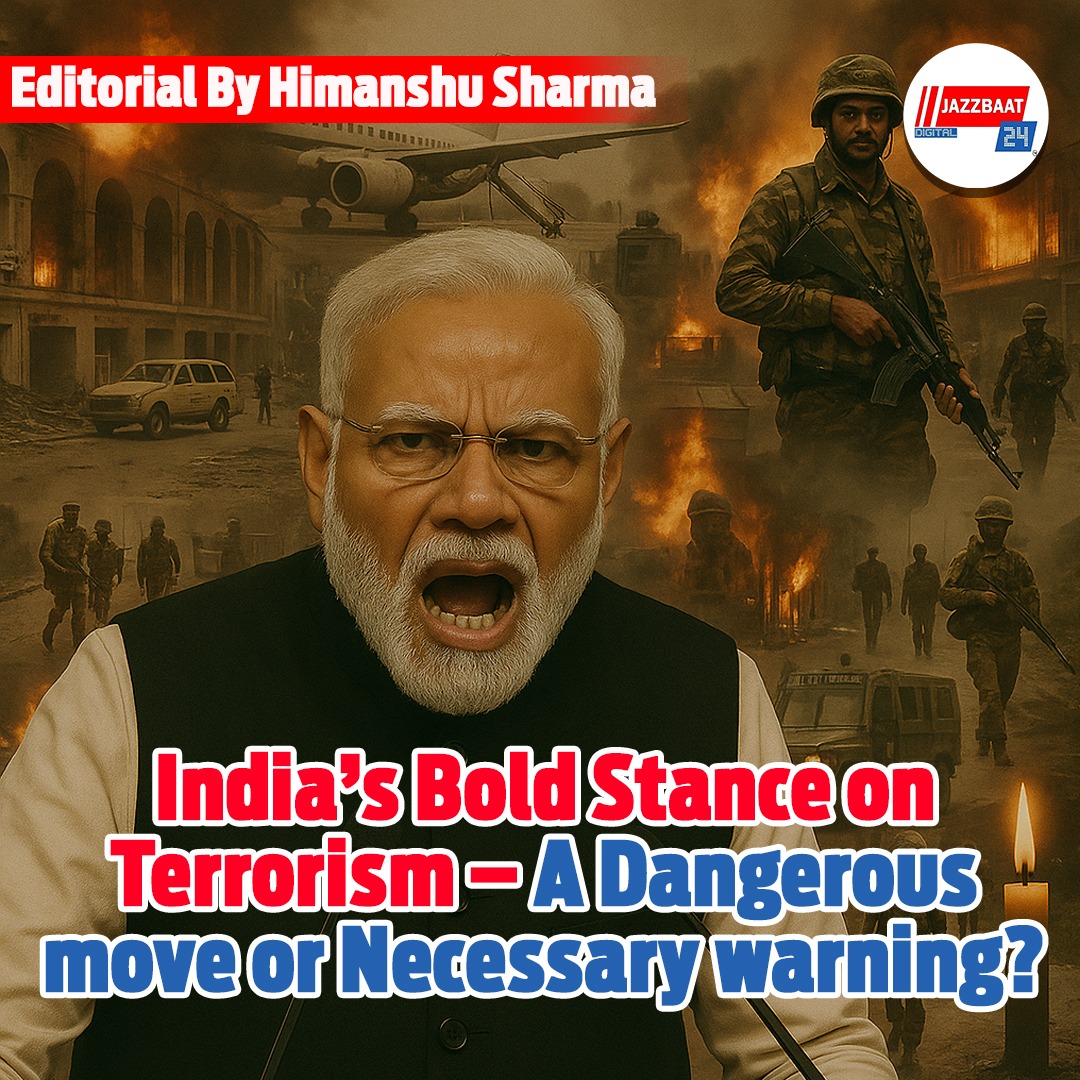
India Commits Next Terror Strikes Will Be Handled as Acts of War
By Himanshu Sharma
May 10, 2025
In a dramatic policy change, the Indian government has announced that any future terrorist attack on Indian territory will constitute an act of war. This follows a series of high-profile terror attacks, including the Pahalgam attack in Jammu and Kashmir, that have prompted the nation to reassess its counterterrorism strategy.
The Pahalgam attack, which occurred early this year in 2025, was against a group of Indian tourists, resulting in 28 killed and injuring numerous others. The attack was said to have been carried out by a terror group based in Pakistan, yet another justification to create further anger in Indian officials as well as people. This attack has been a harsh reminder of the ever-existing danger of cross-border terrorism, which has made India announce their new decision.
Why Did India Make This Move?
India has been fighting a war against cross-border terrorism for decades now with many fatal attacks that have left deep impressions. Major attacks are as follows:
1. 1993- Mumbai Blasts: 257 killed
2. 1999-IC-814 Hijacking: 1 killed
3. 2001 Indian Parliament Attack: 9 killed
4. 2006 - Mumbai Train Blasts: 209 killed
5. 2008-26/11 Mumbai Attacks: 166 killed
6. 2016-Pathankot Airbase Attack: 7 killed
7. 2016 - Uri Attack (J\&K): 19 killed
8. 2017-Amarnath Yatra Attack (J\&K): 8 killed
9. 2019 - Pulwama Attack (J\&K): 40 killed
10. 2023 - Poonch Terror Attack (J\&K): 5 soldiers martyred
11. 2025 - Pahalgam Attack (J\&K): 26 killed
These incidents have precipitated increased public indignation and calls for more decisive action. The Pahalgam attack was the latest among these terror strikes attributed by India to terror groups operating from Pakistan. In this attack, the government has now unambiguously established that it would from now on no longer regard these attacks as indiscriminate criminal acts but as acts of war.
India's government has also assured that any future attack will be countered by a full-fledged response, even the military if the situation demands so. According to a government official, "Terrorism is no longer a criminal problem; it's an attack on the sovereignty of our nation. We will retaliate with all the force at the disposal of the Indian state."
What This Means for India and the World
India's new policy brings terrorism to the same level as military attacks. It now enables India to respond with a stronger, military-style response, in the form of air raids and cross-border attacks, if needed. The government also gains to raise diplomatic efforts to rally world support for its right to defend itself.
The United States, France, and Israel have all spoken in support of India's right to defend itself. Alarm has been sounded internationally, though, over dangers of stoking regional tensions. Analysts argue that by codifying terrorism as an act of war, India may be inviting more conflict with its neighbor, Pakistan.
One foreign policy analyst commented, "India is standing up firmly, but also risks provoking tensions with nuclear-armed neighbors. The situation can get out of hand if either side is not cautious."
Could This Lead to War?
While the new policy aims to discourage future terror attacks, it also heightens the potential for a military response. Pundits are concerned that the tough stance has the potential for miscalculation, particularly in an already volatile part of the world.
Both India and Pakistan are nuclear states, and war between them would have catastrophic fallout. A retired military officer gave the view that, "This policy will keep terrorism at bay for the short term, but the danger of war, even unintentionally, is much greater now. It's a sensitive topic that needs to be handled with tact."
Pakistan denounced India's new policy as an "irresponsible and provocative" action. Islamabad has communicated that any use of force by the military against Pakistan will invite a "strong response," raising once again specters of heightened conflict.
Public Reaction: Mixed Feelings
Indian people are divided down the middle by the new policy. The majority of people, including those targeted in past terror attacks, stand with the government's tough stand. Social networking sites are full of tweets asking for stricter laws to protect Indian citizens from terror groups.
But, warn other analysts, the move can invite unwarranted war and violence. Leaders of opposition political parties have urged the government to overturn the move, stating it would provide further instability in the region. Opposition leaders have also demanded that there be a debate in Parliament prior to the move being finalized to such belligerent policy.
What's Next?
India would likely seek to justify its new policy to the international community, at least through the United Nations and closest friends. The government needs to try to set the pace for firmer action by the international community against terrorism and terrorist groups based across the border.
Indian troops have already been placed on high alert on the Line of Control (LoC) with Pakistan. The country's security forces will be better positioned to deal with any future attacks or provocations. Intelligence sharing with global allies will also become a priority to prevent future attacks.
One senior government minister commented, "We don't want war, but we are making it very clear that terror is not going unpunished. We will do whatever it takes to protect our country and people, no ifs or buts."
Conclusion
India choosing to retaliate against future terror attacks as acts of war is a major shift in the nation's counter-terror policy. This aggressive move follows the Pahalgam attack, which has left the government no choice but to be more assertive against cross-border terrorism. While the new policy is a bid to be a deterrent, it is also expected to raise tensions, especially with Pakistan. The coming few months will tell us how this new strategy affects India's national security and its neighbours.